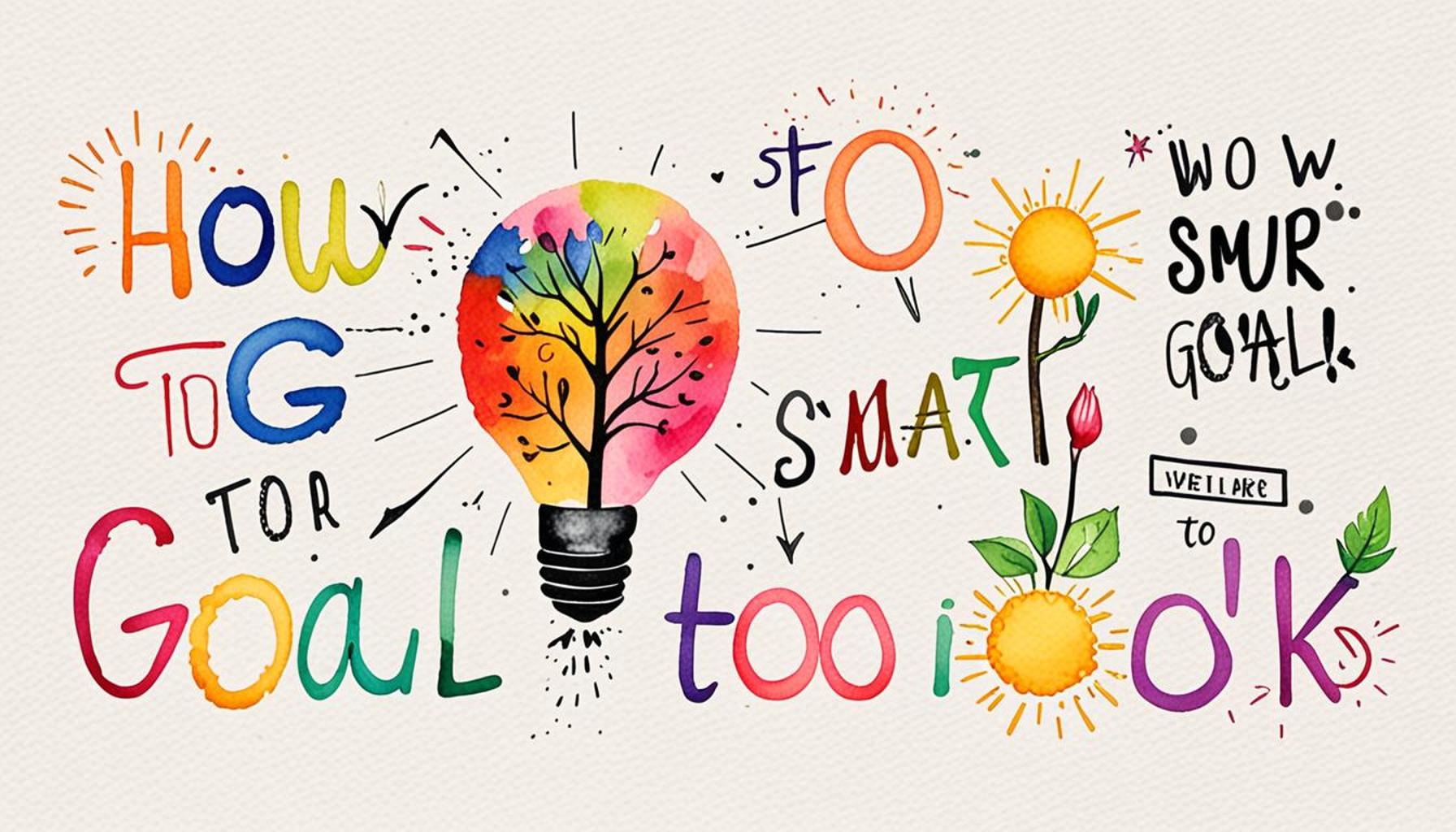The Impact of Self-Discipline on Achieving Goals and the Growth Mindset

The Importance of Self-Discipline in Achieving Success
In today’s fast-paced world, the significance of self-discipline has never been more critical. Individuals striving for success, particularly in a diverse environment like Nigeria, must harness this attribute to align their actions with their aspirations. Self-discipline is not merely about strictness or restraint; it is the ability to control one’s feelings, behaviors, and impulses in pursuit of long-term goals. This quality is a fundamental characteristic of people who achieve their goals in various fields, from academics to entrepreneurship.
Key Components of Self-Discipline
Self-discipline can be broken down into several essential attributes that work in harmony to foster achievement:
- Consistency: It’s crucial to show up every day. For instance, a student preparing for the Unified Tertiary Matriculation Examination (UTME) in Nigeria must consistently study, gradually building their knowledge and skills over time. This predictability in routine solidifies the foundation needed for success.
- Focus: Particularly in a bustling environment, distractions abound. Whether it’s the hustle and bustle of Lagos or the social dynamics in a university setting, maintaining attention on tasks that matter is vital. Concentration on coursework, project deadlines, or business ventures can make the difference between mediocrity and excellence.
- Resilience: Setbacks are an inevitable part of any ambitious journey. Consider entrepreneurs in Nigeria who face power outages or economic fluctuations while building their businesses. A self-disciplined individual learns to bounce back from these challenges, staying committed to their vision despite obstacles.
Each of these components plays a vital role in molding one’s capacity to successfully pursue personal and professional aspirations. The ability to practice self-discipline is intertwined with a growth mindset, which emphasizes the belief that skills and intelligence can develop over time through hard work and perseverance. This concept, popularized by psychologist Carol Dweck, is especially relevant for Nigerians striving to excel in competitive academic and professional environments.
Why Does This Matter?
Understanding the impact of self-discipline on achieving goals is essential for:
- Empowering individuals to take control of their journeys: In a country with diverse opportunities and challenges, having a strong sense of self-discipline encourages individuals to seize control of their paths and take responsibility for their futures.
- Creating a culture of continuous improvement and learning: When people value self-discipline, they cultivate an environment where others are motivated to grow, share knowledge, and support one another in their pursuits.
- Enhancing personal and community development: As individuals become more disciplined, they contribute meaningfully to their communities, whether it’s through mentorship, charity work, or simply setting a positive example for others.
As we further explore the relationship between self-discipline, goal accomplishment, and the growth mindset, it becomes clear that mastering these elements can profoundly influence success. By developing the ability to practice self-discipline, individuals can better navigate life’s complexities and achieve their dreams. Join us on this journey to uncover strategies that foster achievement and resilience, and perhaps even reconsider how self-discipline could reshape your approach to both personal and professional goals.

RECOMMENDED: Check out this similar article
Understanding the Relationship Between Self-Discipline and Success
The interplay between self-discipline and the attainment of goals is profound, particularly in a continent like Africa, where challenges can often seem daunting. Individuals who cultivate self-discipline not only enhance their ability to focus on goals but also foster a growth mindset, which is crucial in realizing their potential. This relationship is not just theoretical; it is backed by numerous studies that underscore the importance of self-control in achieving various life objectives. Research indicates that individuals who exhibit high levels of self-discipline are more likely to succeed in academics, careers, and personal endeavors.
The Benefits of a Growth Mindset
A growth mindset is rooted in the belief that abilities and intelligence can be developed through hard work, effective strategies, and input from others. This perspective dovetails beautifully with self-discipline, as both traits lead to an environment ripe for success. Some key benefits of embracing a growth mindset include:
- Increased Resilience: By understanding that failures are part of the learning process, individuals bounce back more readily from setbacks. This resilience is critical for those navigating the competitive landscapes of Nigerian higher education or entrepreneurial ventures.
- Enhanced Problem-Solving Skills: When faced with obstacles, those with a growth mindset view challenges as opportunities for growth rather than threats. This proactive approach allows them to tackle problems head-on, a crucial attribute in sectors such as tech and agriculture where innovation is key.
- Greater Motivation: With a focus on self-improvement, motivated individuals often go the extra mile. In Nigeria, where ambition can lead to groundbreaking initiatives, motivated individuals are likely to influence others positively and contribute to broader societal improvements.
Clearly, the convergence of self-discipline and a growth mindset opens doors to fulfilling one’s potential while concurrently enhancing one’s environment. This synergy not only fosters individual growth but also inspires collective advancement, as disciplined individuals often operate as role models within their communities. In capitalizing on opportunities unique to Nigeria—such as the tech boom in cities like Lagos or emerging startups in youth entrepreneurship—self-discipline is a critical asset.
The Role of Environment
The environment in which one operates also plays a substantial role in reinforcing self-discipline and facilitating a growth mindset. Nigerian youths, in particular, face myriad situations that test their resolve, from economic uncertainties to fluctuating educational resources. By consciously surrounding themselves with driven individuals and engaging in supportive networks, they can cultivate a stronger sense of accountability. Engaging in mentorship programs or study groups can help maintain focus and encourage resilience, further solidifying the path towards achievement.
In summary, the connection between self-discipline and a growth mindset acts as a catalyst for success, enabling individuals to overcome challenges and absorb lessons from every experience. It becomes imperative to explore practical strategies that can be employed to enhance self-discipline and nurture a growth mindset, especially in the dynamic contexts of Nigeria.
| Advantages of Self-Discipline | Growth Mindset Connection |
|---|---|
| Enhanced Focus | Encourages embracing challenges |
| Improved Time Management | Fosters continuous learning |
| Increased Resilience | Builds confidence in abilities |
| Goal Clarity | Promotes a proactive mindset |
Achieving one’s goals often requires more than mere motivation; it requires a profound level of self-discipline. Self-discipline propels individuals to stay focused on their tasks, opening the door to improved time management skills and a clearer vision of their objectives. Those who harness the power of self-discipline can encounter challenges head-on, transforming obstacles into opportunities for growth. The concept of a growth mindset significantly complements self-discipline. Individuals with a growth mindset understand that abilities can be developed over time, allowing them to embrace challenges rather than shy away from them. This mindset encourages a continual pursuit of knowledge, where mistakes are viewed as valuable lessons that refine their skills. As self-discipline fosters resilience, individuals become increasingly confident in their capabilities, leading them to establish even more ambitious goals. The synergy between self-discipline and a growth mindset can forge a powerful trajectory toward success, facilitating personal and professional development in remarkable ways.
CHECK OUT: Click here to explore more
Practical Strategies to Cultivate Self-Discipline and a Growth Mindset
While understanding the intrinsic relationship between self-discipline and a growth mindset is essential, it is equally important to delve into actionable strategies that individuals can adopt to strengthen these traits. Especially in Nigeria, where ambitions are lofty and opportunities abound, implementing practical methods can enhance one’s likelihood of achieving goals.
Setting Clear and Attainable Goals
One of the foundational steps in cultivating self-discipline is to set clear and attainable goals. In the context of the Nigerian education system, students can break down their academic goals into monthly objectives—aiming for consistently high test scores or mastering specific subjects. For entrepreneurs, defining measurable business outcomes, such as increasing sales by a certain percentage within a quarter, can transform a nebulous ambition into a focused plan of action. Utilizing tools such as the SMART criteria (Specific, Measurable, Achievable, Relevant, and Time-bound) is a proven method that helps individuals structure their goals effectively.
Establishing Routines
Creating a daily routine is another powerful approach to enhance self-discipline. A structured schedule, which includes time for study, rest, and recreation, helps maintain balance and focus. For instance, university students in Nigeria might dedicate specific hours each day to studying, interspersed with breaks for recreation, thereby ensuring that they remain productive without succumbing to burnout. This balance is crucial, particularly in environments where external distractions, such as social media and urban life, can easily derail one’s focus.
Utilizing Technology Wisely
In today’s digital age, technology can be both a friend and foe. Leveraging productivity apps—like Trello for task management or Habitica to gamify daily habits—can significantly boost self-discipline. For those aspiring to success in the tech sector, these tools not only aid in personal goal-setting but also mimic the fast-paced environments they will eventually navigate in their careers. Effective use of technology enables individuals to track their progress, celebrate small victories, and stay motivated.
Seeking Feedback and Mentorship
Engaging with mentors and seeking feedback is vital in nurturing both self-discipline and a growth mindset. In Nigerian culture, where respect and learning from elders are highly valued, finding a mentor can be tremendously beneficial. Whether it’s through formal education institutions, local community initiatives, or online platforms, having someone to guide you can provide critical insights into achieving your goals. Moreover, regular feedback helps individuals adjust their strategies and fosters resilience, reinforcing the idea that persistent effort can lead to improvement.
Embracing a Challenge-Oriented Attitude
A challenge-oriented approach serves as an effective tool to strengthen both self-discipline and a growth mindset. When faced with difficulties, rather than shying away, individuals should embrace them as opportunities for learning. For instance, students encountering complex academic subjects can collaborate with peers to tackle tough assignments, thereby reinforcing teamwork and problem-solving skills. Similarly, local entrepreneurs facing market challenges can adapt by innovatively improving their offerings, showcasing that challenges can propel growth.
As Nigeria continues to navigate its rapidly changing landscape, the emphasis on self-discipline and a growth mindset cannot be overstated. The time is ripe for individuals to assimilate these strategies, embark on their pursuits with renewed vigor, and realize that every effort made today lays the groundwork for their future success.
ADDITIONAL INSIGHTS: Expand your understanding here
Conclusion
In summary, the profound impact of self-discipline on achieving goals and fostering a growth mindset is evident across various spheres, particularly within the dynamic context of Nigeria. By embracing strategic practices such as setting clear and attainable objectives, establishing structured routines, and effectively utilizing technology, individuals can significantly enhance their self-discipline. These practices not only streamline goal attainment but also build resilience against failure, reinforcing the belief that growth stems from challenges.
Moreover, the quest for mentorship and actively seeking feedback is critical in nurturing both self-discipline and a growth mindset. In a culturally rich environment like Nigeria, leveraging communal knowledge can lead to transformative insights that guide personal and professional journeys. As the nation grapples with various economic and social changes, the ability to embrace obstacles as learning opportunities becomes vital for sustained development.
Ultimately, cultivating self-discipline and a growth mindset is not merely a personal endeavor; it is a collective investment in the future of Nigeria. Individuals who adopt these traits are not only committing to their own progress but are also contributing to a culture that values perseverance, learning, and innovation. As we move forward, it’s essential to recognize that every small effort, every disciplined choice, paves the way toward achieving greater aspirations and fostering a more resilient society. The journey is, indeed, as important as the destination.


